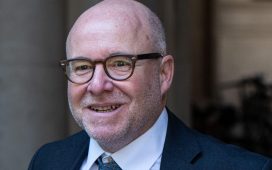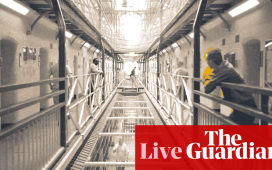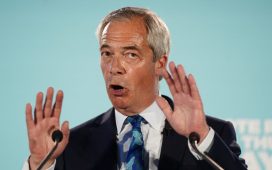The information watchdog has been asked to investigate “authoritarian” government vetting that caused speakers to be banned from official events for criticising ministers.
Two experts, who discovered that civil servants had combed through years of social media posts to judge them “unsuitable” to address conferences, believe the practice was covert and unlawful.
After legal action by chemical-weapons expert Dan Kaszeta, who was disinvited from a Chemical Weapons Demilitarisation conference in 2023, the Cabinet Office withdrew its guidance pending official review, but no outcome has been announced.
Lawyers acting for Kaszeta and education consultant Ruth Swailes, who says she was censored at a Department for Education (DfE) -linked event, have written to the Information Commissioner’s Office (ICO) calling for a probe into the checks and alleging that they were unlawful under data protection laws.
The letter said an official document published in February 2023 called for “due diligence checks on any individual or external organisation [that cross-government networks] are working with to ensure they are not engaged in political or campaigning activities”, adding that “overt criticism of government could compromise our impartiality as civil servants”.
While the guidance only applied to specific civil service networks that span different government areas, the letter said it appeared to “have been shared widely and adopted” by individual departments. Freedom-of-information requests revealed that versions of the “due diligence” policy were drawn up by departments including the Treasury, Ministry of Justice, Department of Health and Social Care, Ministry of Defence, Department for Transport, and Department for Culture, Media and Sport.
Several departments ordered online searches for any material linked to potential speakers showing “criticism of government/prime minister” or “criticism of government officials or policy”. The instructions mandated reviews of a “minimum of five to 10 pages of search page results” and a “period of three to five years” across both professional and personal social media “including but not limited to Twitter, Instagram, Facebook and LinkedIn”.
Swailes said she did not know how many people had been subjected to the checks or whether they were still ongoing. She said: “I’d like to see some transparency. I would like them to admit what they’ve done is wrong.”
Swailes, an expert in early years education, had been approached to speak at an event in March 2023 launching a government-funded hub to improve the education of under-fives in Manchester. Two days before she was due to travel, she was told the DfE had deemed her and a colleague “unsuitable”; that, as a result, they could speak only by video link and had to remove parts of a PowerPoint presentation.
“I was just going to talk about child development – it was bonkers,” Swailes said. “We didn’t know what we were being accused of – we felt our personal reputations were being tarnished.”
A subject access request (SAR) revealed DfE officials had sifted through her social media.
“I’d put a photo of my daughter’s prom on Twitter and said how proud I was of her, and that was on the SAR,” Swailes said. “It was very weird – they were going through everything. I saw [it] and I thought: ‘This is not OK.’”
Swailes said she had criticised aspects of the government response to Covid over its impact on children but “there was nothing controversial” to find. “I think you’d find very few people who haven’t criticised a government in five years. It seems very heavy-handed”.
Kaszeta, an author and defence consultant, said that while he received an apology when the Cabinet Office guidance was withdrawn in July 2023, he had received no update on the promised review.
after newsletter promotion
“If it is still happening, how does somebody affected know?” he said. “I only know it happened to me because someone emailed Kaszeta had been asked to speak at the Chemical Weapons Demilitarisation conference in May 2023 but was later disinvited because a check on his social media found criticism of the government.
“I don’t actually know what triggered it,” he said, adding that he had voiced support for the Liberal Democrats and criticised then-ministers Jacob Rees-Mogg and Nadine Dorries on X.
“What does that have to do with me talking about international chemical weapons conventions?” Kaszeta said. “I would like to see a public record saying this is wrong, not just that there’s going to be a review.”
Josh Munt, an associate solicitor at Leigh Day, called the checks “invasive and covert” and said they had caused censorship of “challenging opinions”.
“Our clients hope the information commissioner will now take action and confirm that the government’s vetting of external experts’ political views is unlawful,” he added.
A Cabinet Office spokesperson said: “This guidance was withdrawn over a year ago under the previous government. There is no cross-government guidance on vetting speakers for departmental events.”
A spokesperson for the ICO said: “We can confirm we have received a complaint and are assessing the information provided.”











